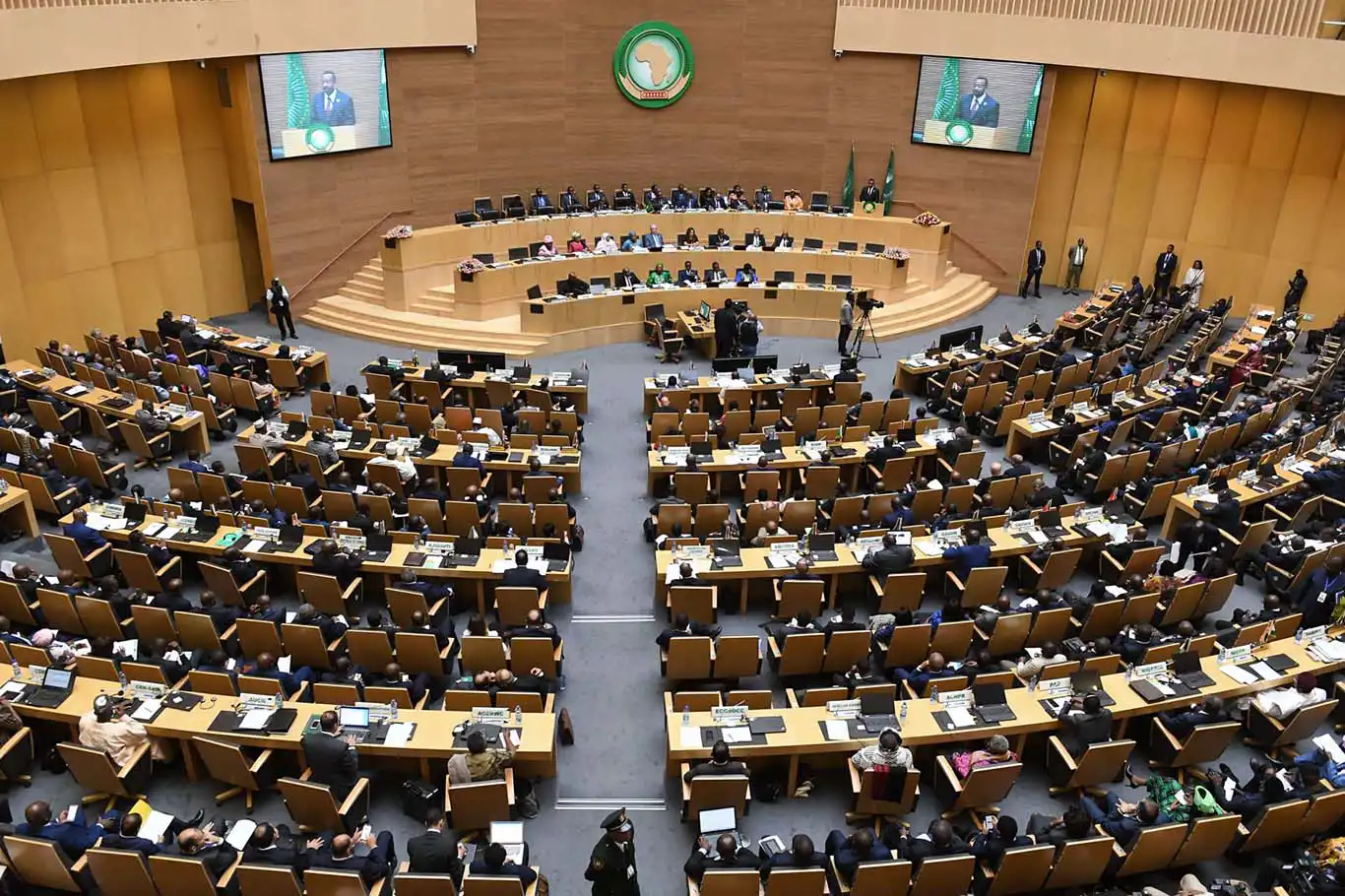African Union dismisses Trump’s threats, urges diplomacy with Nigeria


The African Union Commission (AUC) has voiced firm support for Nigeria’s sovereignty, religious freedom, and rule of law, rejecting recent statements by the United States that accused Nigeria of complicity in attacks against Christians and hinted at possible military intervention.
In a statement issued Friday via its official X account, the AUC emphasized the primacy of diplomacy, dialogue, and mutual respect over unilateral threats. The commission reaffirmed that Nigeria, a founding and influential member of the AU, remains a key pillar of regional stability, counterterrorism, and continental peacekeeping efforts.
“The Federal Republic of Nigeria is a longstanding and valued member state of the African Union, playing a key role in regional stability, counter-terrorism, peacekeeping initiatives, and continental integration,” the statement read.
The commission called on international partners to uphold Nigeria’s right to manage its internal affairs without external interference, asserting that sovereignty and territorial integrity are core principles of the African Union Charter.
“The AUC fully respects Nigeria’s sovereign right to manage its internal affairs, including security, religious freedom, and human rights, in line with its Constitution and international obligations,” it said.
The AU stressed that security challenges in Nigeria should not be mischaracterized as religious conflicts, cautioning against Western narratives that frame complex violence through a sectarian lens.
“The AUC rejects any narrative that weaponises religion or oversimplifies security challenges. Conflating all violence with a single religious-target narrative may hinder effective solutions and destabilise communities,” the statement warned.
Responding to U.S. claims of systematic persecution of Christians, the AUC said Nigeria’s Constitution guarantees freedom of religion and belief for all citizens.
“The commission supports Nigeria’s repeated affirmation that its Constitution guarantees freedom of religion and belief, and that the government rejects all forms of religious persecution,” the release stated.
It further acknowledged the multifaceted security crises Nigeria faces — from violent extremism and banditry to communal and resource-based conflicts — noting that these affect citizens of all faiths and ethnicities.
The AU’s response came after U.S. President Donald Trump said on November 1 that he had directed the Pentagon to prepare “options for possible military measures” in Nigeria, claiming the move was aimed at protecting Christian communities.
“Thousands of Christians are being killed. Radical Islamists are responsible for this mass slaughter. I am hereby designating Nigeria a ‘country of particular concern,’”
The former U.S. president added that Washington was “ready, willing, and able to protect our great Christian population around the world,” and called for Congressional investigations into alleged atrocities.
Trump’s remarks sparked diplomatic backlash. Moscow urged Washington to “act responsibly and in line with international law.” Russian Foreign Ministry spokesperson Maria Zakharova said her government was closely monitoring the situation and called on all parties to comply with international legal norms.
In Abuja, the Federal Government of Nigeria dismissed the U.S. allegations as baseless and politically motivated. President Bola Ahmed Tinubu reiterated that Nigeria is a multi-religious democracy that protects the rights of all its citizens.
“Nigeria remains committed to religious freedom and will continue to defend the rights of Muslims, Christians, and people of all faiths without discrimination,” a government spokesperson said.
The African Union Commission concluded its statement by pledging continued support for Nigeria through peace and security mechanisms, regional cooperation, and institutional capacity-building.
“The African Union Commission remains committed to supporting Member States in promoting peace, security, human rights, and development, while upholding sovereignty and non-interference,” the AUC said.
Observers note that the AU’s firm stance signals a growing resistance among African states to external interventionist policies, especially those framed through religious or humanitarian pretexts. The episode underscores Africa’s insistence on continental solutions to African challenges, guided by the principles of sovereignty, partnership, and mutual respect. (ILKHA)
LEGAL WARNING: All rights of the published news, photos and videos are reserved by İlke Haber Ajansı Basın Yayın San. Trade A.Ş. Under no circumstances can all or part of the news, photos and videos be used without a written contract or subscription.
Iranian President Masoud Pezeshkian on Saturday inaugurated a major infrastructure project designed to transport desalinated seawater from the Gulf of Oman to Isfahan province, a move aimed at easing chronic water shortages affecting key industrial centers in central Iran.
Thousands of protesters took to the streets of central Melbourne on Saturday in a large-scale demonstration in solidarity with Palestine and Gaza, condemning Israel’s ongoing military operations and calling for the country’s exclusion from the 2025 Eurovision Song Contest.
At least 116 people, including 46 children, were killed after Sudan’s Rapid Support Forces (RSF) carried out deadly strikes on a pre-school and other civilian sites in Kalogi, local officials and medical sources said.
A powerful earthquake of magnitude 7.0 struck a remote region near Yakutat, Alaska, the United States Geological Survey (USGS) reported Saturday.